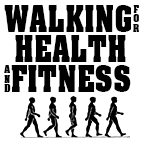7 Benefits of Getting Outside
The big “O”! No, not that big O! This big "O" stands for “Outside”!
Are you getting outside enough?
According to the Environmental Protection Agency (EPA), the average American spends only 7% of their time outdoors1! That’s only one half of one day per week.
Doctors in the Shetland Islands of Scotland are prescribing time outdoors to more and more of their patients that suffer from stress, heart disease, diabetes, mental health problems, or other chronic diseases.
How about this prescription from Dr. Daphne Miller of San Francisco:
Drug: Exercise in Glen Canyon Park (See attached Google map.) Dose: 45 minutes of walking or running Directions: Monday, Wednesday, Friday, and Saturday at 7:00 AM
Refill: Unlimited
“What I've noticed in my practice mirrors what has been observed in the studies: Inactive patients who initiate a new exercise regimen outdoors are more likely to stick with it than those who join a gym or work out in the confines of their basement.”
7 Benefits of Getting Outside
1. Boost Energy: A University of Rochester study suggests that 90% of people experience increased energy just by being active outdoors. A 20-minute walk will give you the same energy boost as a cup of coffee.
2. Good for Your Eyes: In children, the risk of myopia (short-sightedness) drops by 14% for every additional hour they spend outside. Being outside forces you to look further in the distance, which naturally lubricates eyes and allows your eye muscles and lenses to relax.
3. Increases Your Immunity: Exposure to a diverse variety of bacteria present in natural areas is beneficial for your immune system. Also, it’s believed that breathing in phytoncides – airborne chemicals produced by plants – increases our levels of white blood cells which help to fight off infection. That’s according to a study by the University of East Anglia.
4. Boost Vitamin D: You need to get outdoors and into the sunlight to get this essential vitamin. Vitamin D is essential to maintain the health of bones and teeth, support the health of the immune system, brain, and nervous system, regulate insulin levels, aid diabetes management, and lastly, support lung function and cardiovascular health.
5. Improves Mental Health: 20-30 minutes outdoors reduces cortisol levels. Cortisol is your body’s main stress hormone. It works with certain parts of the brain to control your mood, motivation, and fear. It’s your built-in alarm system… too much cortisol is not good for you.
6. Better Sleep: Your circadian rhythm is regulated by exposure to natural light, so your body clock becomes more in tune with nature’s light and dark cycle. This helps to get to sleep at night.
7. Have more fun! Read: 29 Things to Do While Walking for some great ideas to keep you fit, healthy, motivated, and on the right “path” to doing more when your outside.
Why walking supercharges the benefits of getting outside
Benefits of Walking
Reduce stress
Ward off anxiety and feelings of depression
Boost self-esteem
Improve sleep
How does walking do all this? By producing endorphins in response to prolonged, continuous exercise.
What’s so important about endorphins?
Endorphins are stress fighters and natural pain killers. Endorphins are brain chemicals known as neurotransmitters, which transmit electrical signals within the nervous system. Stress and pain are leading factors in the release of endorphins. Endorphins interact with the opiate receptors in the brain to reduce the perception of pain.
Endorphins act similarly to drugs such as morphine and codeine BUT without the addiction or dependence. So, endorphins are released to decrease the feeling of pain.
The Secretion of Endorphins Leads to:
Feeling of euphoria
Modulation of appetite
The release of sex hormones
Enhancement of the immune response
All these benefits just from exercising! And, walking is our exercise of choice!
Walking is by far the easiest and most effective way to take care of your health. A daily 35-minute walk will improve your cardiovascular health, reduce excess body fat, strengthen bones, and enhance muscle performance!
For people who may be predisposed to certain health conditions, walking can reduce the risk of heart disease, cancer, diabetes, arthritis, osteoporosis, back issues, Alzheimer’s disease, and other dementias.
Walking is also an antidote for being overweight and obesity. These conditions are known to increase blood pressure, and high blood pressure is the leading cause of strokes.
Excess weight also increases your chances of developing other problems linked to strokes, including high cholesterol, high blood sugar, and heart disease.
Your next step:
Make it a priority to enjoy the benefits of getting outside. Schedule an outside activity, preferably walking, just as you would schedule and stick to a doctor’s appointment (print out the prescription above). Good health and fitness are only a few steps away!
Walk on,
Frank
P.S. Taking pictures one of my favorite walking activities!
All images taken while out walking by: Frank S. Ring
Resources
brain-post-much-time-average-american-spend-outdoors/
natural-medicine-doctors-prescribing-outdoors-2614316041.html














